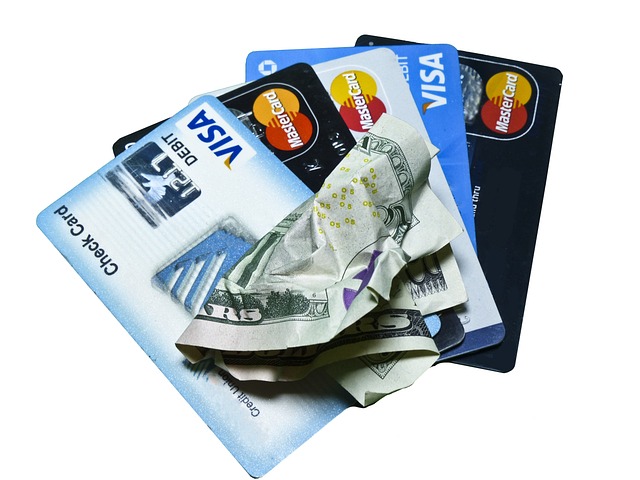Debt consolidation loans streamline payments by merging multiple debts into one with lower interest rates, simplifying repayment. Key considerations include understanding loan types (secured vs unsecured) and evaluating financial health, credit score, and repayment capacity. Secured personal loans use assets as collateral for potentially lower rates and longer terms, while unsecured loans are easier to access but carry higher risks of credit damage upon default. Evaluating these factors is crucial to select the most suitable debt consolidation method aligned with individual financial goals. (SEO keyword: Personal Loans for Debt Consolidation)
Struggling with multiple debts? Discover the power of debt consolidation through personal loans. This comprehensive guide explores two primary options: secured and unsecured debt consolidation loans, each with unique advantages and considerations.
Learn how secured loans use collateral, offering potentially lower interest rates, while unsecured loans provide flexibility without guarantees. Weigh the pros and cons to determine which option aligns best with your financial goals. Unlock the path to debt freedom today!
- Understanding Debt Consolidation Loans: A Comprehensive Overview
- Secured Debt Consolidation Loans: How They Work and Benefits
- Unsecured Personal Loans for Debt Consolidation: Pros and Cons
- Choosing the Best Debt Consolidation Option: Factors to Consider
Understanding Debt Consolidation Loans: A Comprehensive Overview

Debt consolidation loans are a popular solution for individuals looking to simplify their finances by combining multiple debts into one. These loans offer a structured repayment plan, often with a lower interest rate than individual credit card balances or existing loans. The primary goal is to make managing debt easier and potentially save money in the long run. Personal loans for debt consolidation allow borrowers to pay off creditors in full, eliminating multiple monthly payments and reducing the risk of missing due dates.
When considering a debt consolidation loan, it’s crucial to understand the different types available. Secured loans require collateral, typically in the form of an asset like a car or home, while unsecured loans do not. Unsecured personal loans for debt consolidation are attractive as they don’t require any collateral, making them more accessible. However, they often come with higher interest rates compared to secured options. Borrowers should carefully evaluate their financial situation, credit score, and ability to repay before choosing a loan type, ensuring it aligns with their long-term financial goals.
Secured Debt Consolidation Loans: How They Work and Benefits

Secured debt consolidation loans are a popular option for individuals looking to streamline multiple high-interest debts into a single, more manageable payment. This type of loan involves using an asset—typically a home or vehicle—as collateral. Lenders offer these secured personal loans at potentially lower interest rates because they have the security of your asset. The process works by paying off all existing debts with the consolidation loan, simplifying your financial obligations and saving money on interest payments over time.
One significant benefit is the ability to secure favorable terms, including a longer repayment period and fixed interest rates. This can make it easier to budget and eliminate the worry of fluctuating payment amounts or rising interest rates. Additionally, consolidating debt through a secured personal loan may improve your credit score over time as you demonstrate responsible management of credit.
Unsecured Personal Loans for Debt Consolidation: Pros and Cons

Unsecured personal loans for debt consolidation have gained popularity as a quick and easy solution for many individuals struggling with multiple debts. The main advantage is accessibility; since these loans don’t require collateral, they often have simpler application processes compared to secured loans. This makes them an attractive option for those who want to simplify their repayment obligations without putting up assets as security.
However, there are also considerations. Unsecured loans typically carry higher interest rates because of the increased risk for lenders. If a borrower defaults on repayment, they risk damaging their credit score and potentially facing legal action, unlike with secured loans where the lender can seize collateral. Additionally, while unsecured personal loans provide flexibility in terms of loan amount and purpose, they may not offer as favorable terms or lower interest rates compared to other consolidation methods like home equity loans or balance transfer cards.
Choosing the Best Debt Consolidation Option: Factors to Consider

When deciding between secured and unsecured debt consolidation loans, several factors come into play, each influencing your choice based on your financial situation and goals. Personal Loans for Debt Consolidation offer a straightforward path to repayment, but they carry a higher risk since they’re unsecured; meaning no collateral is involved. This makes them more accessible but potentially less favorable if you face financial setbacks.
On the other hand, secured debt consolidation loans require collateral, usually in the form of an asset like your home or car. While this mitigates risk for lenders, it introduces the threat of losing said asset if you default. Interest rates for secured loans tend to be lower, and repayment terms can be more flexible compared to unsecured options. Weighing these pros and cons will help guide your decision towards the best debt consolidation method for your needs.
When deciding on a debt consolidation strategy, whether through secured or unsecured personal loans, individuals should carefully weigh their financial situation and goals. Secured loans offer advantages like lower interest rates and extended terms, but come with the risk of collateral. Unsecured options provide flexibility and no collateral requirements, yet may have higher rates. Ultimately, the best choice depends on individual creditworthiness, debt amount, and preference. Both secured and unsecured personal loans for debt consolidation can lead to financial freedom when managed responsibly.
